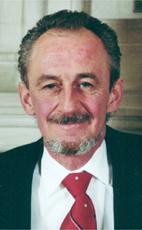Madam Speaker, I would first of all like to thank the member for Capilano-Howe Sound for his comments. However, I must tell you that I do not share his opinions. To avoid any confusion, I would say to the hon. member that, although I am seated on this side of the House and speak French, I am not a Bloc Quebecois member. I am one of the millions of francophones outside Quebec who consider Canada, including Quebec, as their country.
Nevertheless, Madam Speaker, I have one thing in common with my colleague here from the Bloc; like him, I am puzzled too. From the beginning, since this House opened, I have heard the Reform Party with its far-right agenda telling us that we should not spend money to help the regions, we should not subsidize small business. Implicit in that is that people are poor through their own fault, because they want to be poor.
I also deplore the debate on equalization turning into a battle between Quebec and the rest of Canada. Very little is said about the other provinces like New Brunswick and Newfoundland. I think that the equalization program is unique; it helps define us as Canadians.
It is a program whereby the richer regions help the less well-off regions. I am from northern Ontario and I can tell you that our unemployment rate is probably higher than anywhere in Quebec. In some regions like Kirkland Lake, for example, it is 40 per cent.
That being said, I do not care whether my money is used to help people in Quebec, New Brunswick or Newfoundland. That is what Canada is all about.
In the morning, the people in the Reform Party tell us that we absolutely must keep small rural post offices open, and I agree with that because it is a kind of regional development. We can keep our small post offices open because people elsewhere in the country subsidize them and I fully agree with that.
What I do not understand is that in the morning, they ask us to do it, but in the afternoon, they tell us to cancel these programs. I would like to know what the Reform Party really wants on this.

